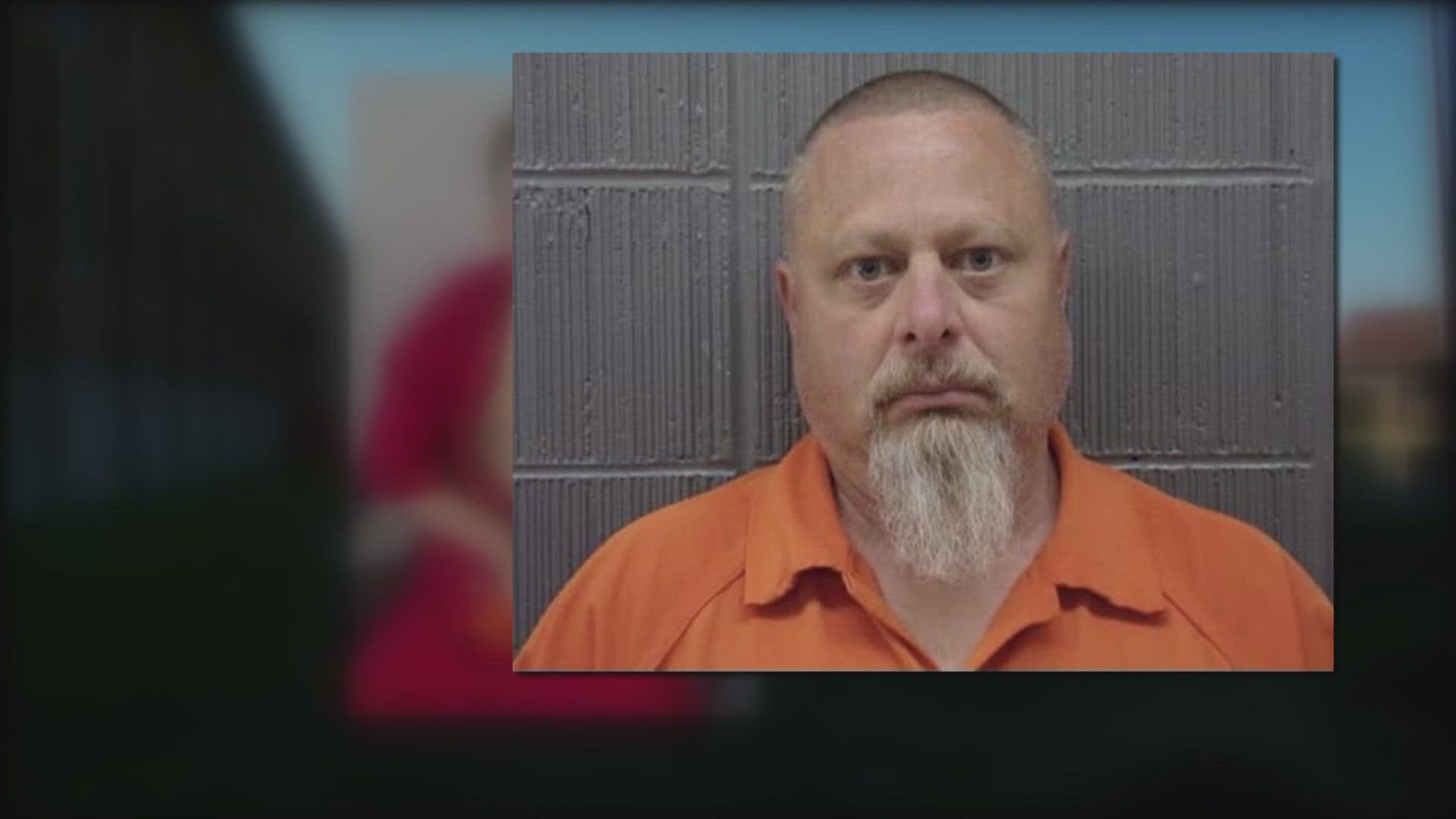DELPHI, Ind. — The man accused of killing two Delphi teenagers will be moving to the custody of the Carroll County sheriff, the judge in the case ruled Thursday.
During the third day of a pretrial hearing, Judge Frances Gull granted a request from suspect Richard Allen's defense team to vacate a safekeeping order. That means Allen will be moving out of the Indiana Department of Correction and into the custody of the county sheriff.
Carroll County Sheriff Tony Liggett would not reveal where Allen will be housed or when he will be moved.
On Tuesday, Liggett said his jail could not accommodate Allen. Defense attorneys presented information that the Cass County sheriff said his jail could hold Allen.
A move to Cass County would move him much closer to his family and also within minutes of one of his attorneys.
Nine witnesses testified Thursday through about 9 p.m., ending three days of hearings in Carroll County.
On Wednesday, an Indiana State Police detective assigned to the case testified that Allen has confessed more than 60 times to committing the murders.
That revelation came during a day filled with surprising testimony as Delphi murders suspect Richard Allen returned to court for a second day of hearings before his October trial.
Wednesday’s hearing focused on motions from Allen’s defense team that seek to suppress incriminating statements the defendant made while behind bars at the Westville Correctional Facility.
Allen has been locked up in maximum security state prisons for 21 months since his arrest for allegedly killing Abby Williams and Libby German in Delphi in early 2017.

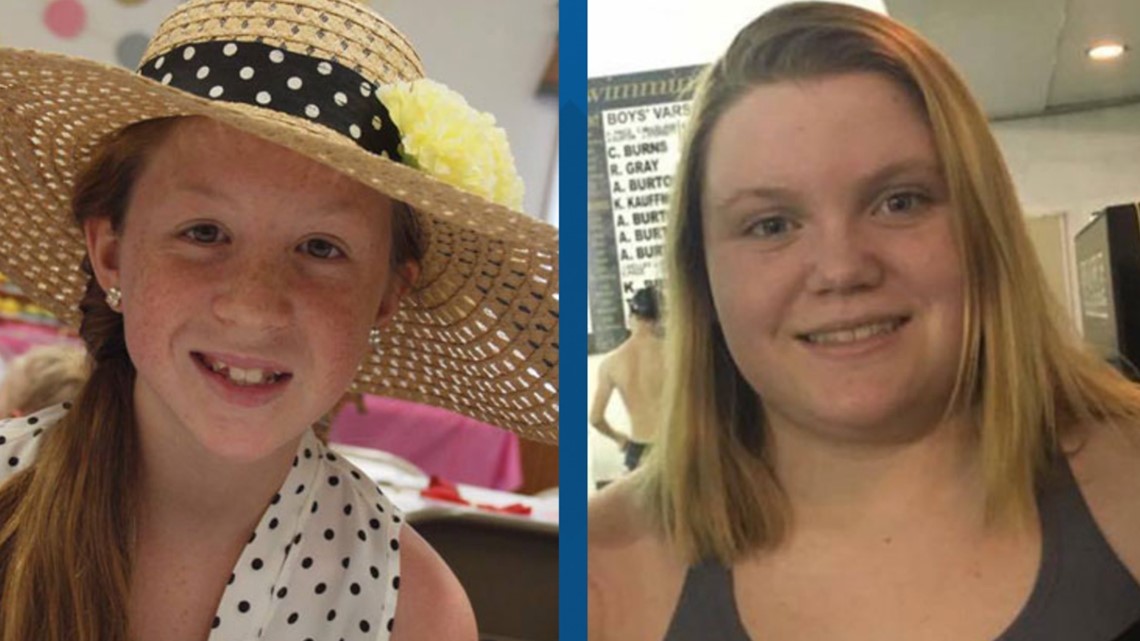
The Carroll County prosecutor says it has dozens of confessions from Allen to present to a jury, and multiple witnesses backed up that claim during Wednesday’s surprising testimony.
RELATED: Prosecutors and Richard Allen's attorneys clash over information sharing at Delphi murders hearing
But defense attorney Brad Rozzi presented evidence suggesting the confessions were coerced due to improper policies and intentional actions taken by investigators and prison staff that violated Allen’s constitutional rights.
The eight-plus hours of compelling testimony, legal arguments and evidence leave special judge Frances Gull with plenty to consider as she decides one of the most important questions still lingering ahead of the Delphi murders trial: Will jurors get to hear about Allen’s confessions or will the statements be considered off limits and inadmissible at trial?
Confession to the prison warden
Allen’s defense attorney told the judge his client was sent to one of the state’s harshest prison environments following his 2022 arrest, assigned to cell 107 inside the A-Block of the Westville Correctional Unit. During testimony, former Westville warden John Galipeau acknowledged the isolation unit “is like a prison inside a prison,” usually reserved for convicted criminals facing disciplinary action inside the prison or those who require very close supervision.
Allen was assigned to the maximum security prison to await trial despite having no previous criminal history. The Carroll County prosecutor requested a safekeeping order to house Allen in a prison rather than in the Carroll County jail because the county sheriff said he did not have adequate staff to ensure Allen’s safety.
Galipeau admitted he was not aware of any other pre-trial detainee being assigned to the harsh conditions of the Westville Correctional Unit’s 8 x 12-foot isolation cells during the warden’s 28 years in the Indiana Department of Correction, and he said Allen was placed there at the direction of top IDOC administrators so he could be observed under the prison’s suicide watch protocols.

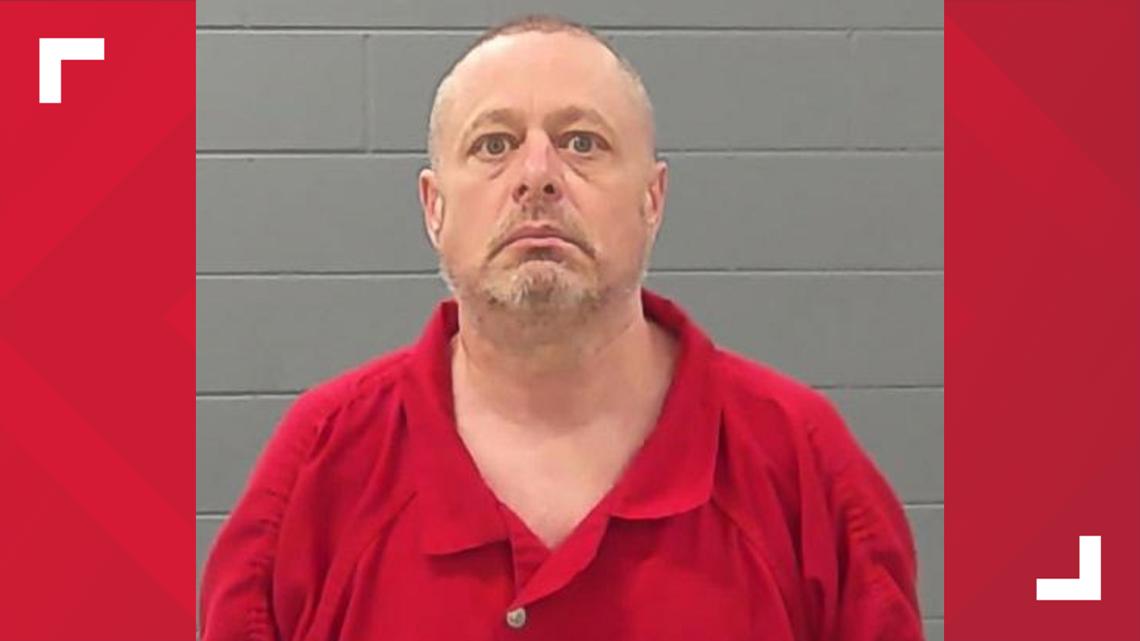
Those protocols include an in-cell video camera that recorded Allen 24-hours a day, as well as other inmates assigned as “suicide companions” to stand watch outside Allen’s cell.
The defense claims some of those other inmates violated prison rules by talking with Allen about his criminal charges – documenting Allen’s statements for prison staff and, in some cases, also sharing Allen’s statements with their own family members. The inmate suicide companions were then replaced by prison guards who stood watch and who also documented any incriminating statements made by Allen, according to the former warden.
While stationed outside Allen’s cell, both inmates and guards reported that he confessed to the Delphi murders. Galipeau testified that Allen also confessed committing the murders directly to him during one of the warden’s frequent visits to Allen’s cell block to check on inmates.
“He confessed,” Galipeau told the judge, adding that he never asked Allen about the murders and never told his prison guards to speak with Allen about the charges.
Another witness told the judge about other confessions.
Kenneva Mapps, a lead investigator at the Westville prison, testified that her staff logged two confessions that Allen made while inside the prison and then turned those confessions over to Indiana State Police investigators who issued a subpoena for the records.
Dozens of other confessions
The day’s most memorable witness was longtime Indiana State Police detective Brian Harshman, who is assigned to monitor all reports, videos and phone calls involving Allen while the murder defendant has been in prison.
Asked how many incriminating statements Allen has made behind bars, Harshman responded “60-plus direct confessions.” He said some of those confessions included specifics of the Delphi murders that only the actual murderer would know, as well as motivation for the crimes. (The detective did not elaborate with additional details.)
Harshman also testified that the confessions started in March 2023 after Allen started reading a bible in his prison cell and began proclaiming that he had “found God.”

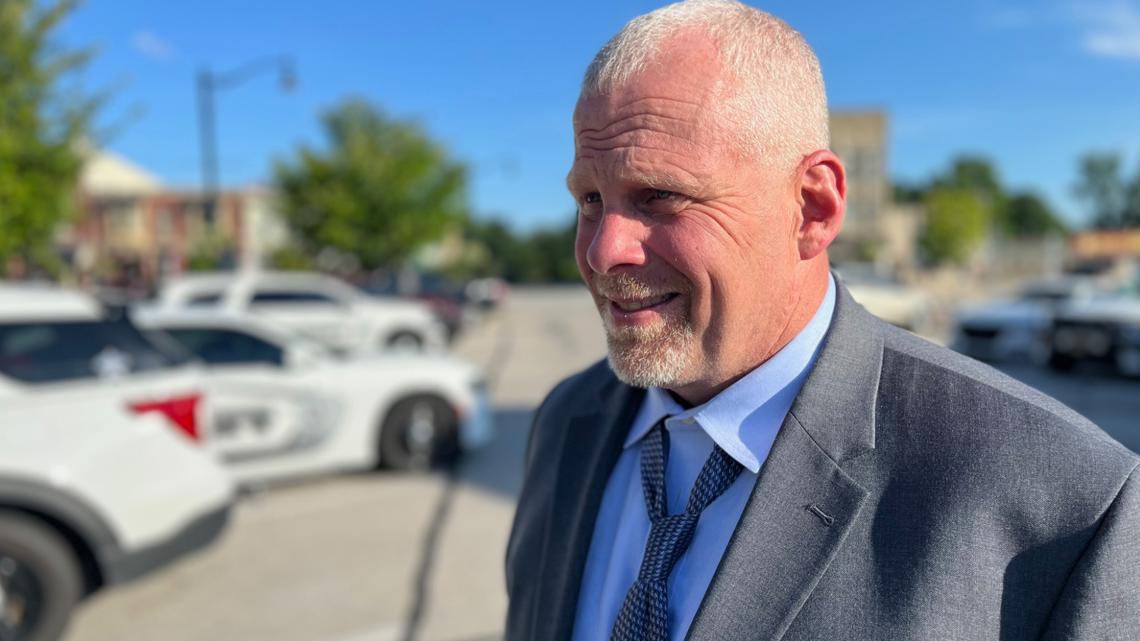
He said many of the confessions came during Allen’s phone calls with his wife and mother, with the early confessions resulting in “initial disbelieve and shock.” Harshman said as time went on and Allen made additional incriminating statements to his family, they responded with “They’re messing with your mind” or “Stop talking about it.”
During much of Harshman’s testimony, Allen shook his head in disagreement while sitting alongside his attorneys.
“We’re talking about 61 [incriminating] statements made over the course of two months,” said Stacy Diener, an attorney representing the Carroll County prosecutor’s office. “His statements were unsolicited.”
“Serious mental illness”
A prison psychologist who met regularly with Allen testified that she also heard Allen confess to the murders. But Dr. Monica Wala said Allen’s mental health was “extremely poor, critical and deteriorating,” and that he suffered from stress-induced psychosis at the time he made his confessions.
She also testified there was “no doubt” he had serious mental illness around that time, evidenced by Allen’s attempts to “beat his head into the wall.” According to notes that Wala recorded in Allen’s medical chart:
March 23, 2023: Allen was depressed and withdrawn and said he “was not straight in the head."
April 4, 2023: Allen suffered from insomnia, hopelessness, was suicidal, and stated “death would bring relief to him."
April 13, 2023: Allen was exhibiting “bizarre” behavior, including consuming his own feces, and was suffering from a “grave disability.” The prison psychologist ordered Allen receive an involuntary injection of psychotropic medication.
April 21, 2023: Allen’s thoughts were disjointed and he was saying “strange things.” Wala discussed that he might be considered incompetent to stand trial.
May 3, 2023: Allen said he wanted to confess details of the crime.
May 18, 2023: Allen receives another dose of psychotropic medication.
May 23, 2023: Allen diagnosed as suffering from stress-induced psychosis.
June 8, 2023: Allen’s depression “at its peak,” noted trembling, knees buckling.
June 16, 2023: Allen receives another dose of psychotropic medication.
Late June, 2023: Allen’s mental health improving.
October 2023: Allen was proclaiming his innocence.
Allen’s defense team claims the confessions fall within the timeframe of Allen’s severe psychosis diagnosed by prison psychologists.

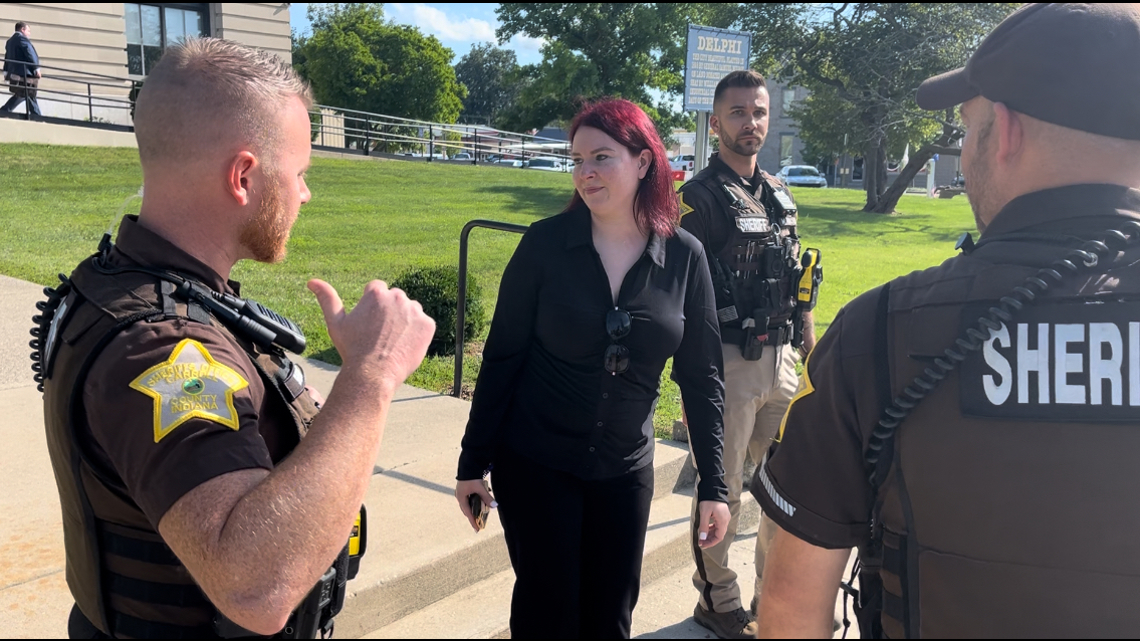
They told the judge the IDOC failed to provide Allen adequate mental health care during that time because prison staff and investigators prioritized his status as a “safekeeper” inmate who had to be monitored around-the-clock in an isolation cell rather than following department guidelines that requires inmates – especially those suffering from severe mental illness – be housed in isolation no longer than 30 days. Allen has been held in isolation status for 19 months.
Rozzi said keeping Allen in those conditions while also placing other inmates and guards outside his cell to record his statements, constantly videotaping his behavior and movements and monitoring all of his texts and phone calls resulted in multiple violations of Allen’s civil rights, including his right to due process, his right to legal counsel, his right against self-incrimination and cruel and unusual punishment.
“This comes down to whether actions by the state constitute an interrogation and whether he had a right to have his attorneys present under the Sixth Amendment,” Rozzi told the judge.
Because he believes the confessions were essentially coerced, Rozzi wants the judge to suppress all the confessions, which means a jury would not hear them during the murder trial.
Thursday morning, he and Diener will summarize their arguments for the judge, and she is then expected to take the issue under advisement with a ruling coming within the next several weeks.
Gull’s decision will be incredibly important for both sides and could directly impact the outcome of the trial.
Other notes from Wednesday's hearing
The prison psychologist assigned to treat Allen while he served time at the Westville Correctional Facility testified that she has long been fascinated by the Delphi murders and that she and her boyfriend traveled together to Delphi so they could visit the crime scene and stand on the Monon High Bridge prior to learning of Allen’s arrest.
Dr. Monica Wala said she frequently listens to true crime podcasts about the Delphi murders case during her commute to the Westville prison and has commented on social media about which of those podcasts she recommends. She also admitted she used her IDOC-issued computer to research other people mentioned as having possible involvement in the murders, a possible violation of department policy.
Wala testified that she also spoke with Allen about the positive comments she has read online from his supporters, and she advised him not to discuss his possible involvement in the murders with anyone other than his defense attorneys. Asked by Rozzi if her actions presented a conflict of interest and ethical problems, Wala responded “I disagree.”
Judge Gull announced 600 residents in Allen County will soon receive a jury questionnaire by mail, informing them they must report for jury duty on Oct. 14 to serve as possible jurors for the Delphi murders trial. Gull plans jury selection to take three days, and 100 potential jurors will be interviewed each day until all jurors and alternates are selected.
The Allen County clerk previously sent jury questionnaires to 600 Allen County residents when Allen’s murder trial was scheduled to take place in May. The trial was postponed until October, requiring the court to release members of the previous jury pool and start over. The jury will be selected from Allen County – not Carroll County where the murders took place – to find an impartial jury following years of intense media attention surrounding the murders.

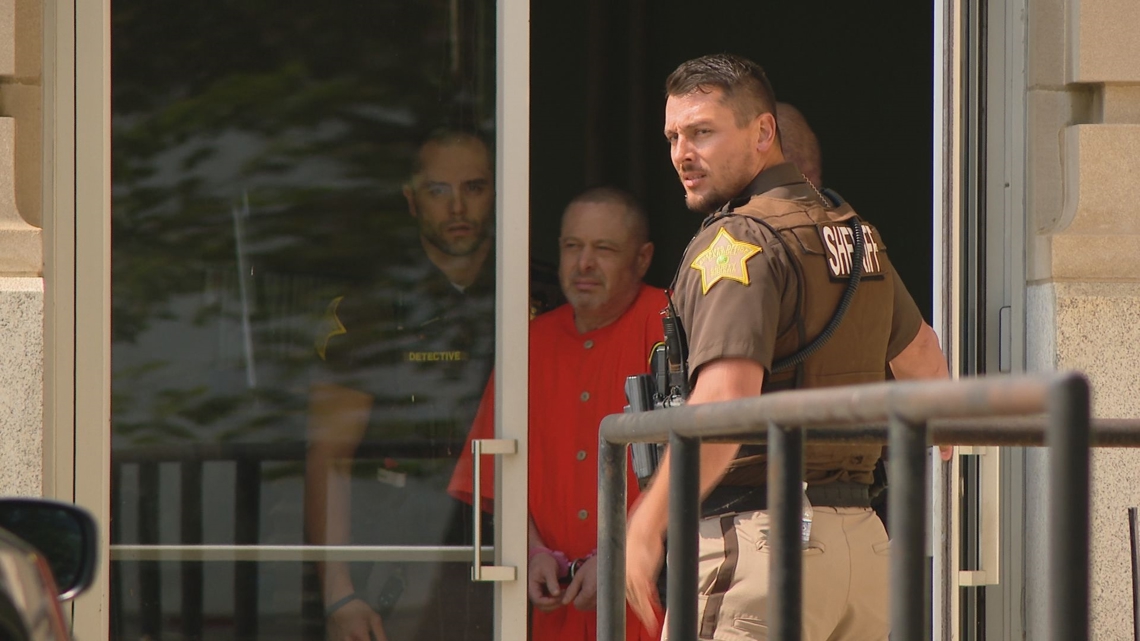
Allen’s defense team informed the judge Wednesday morning they wanted to withdraw a second motion to suppress statements that Allen made to investigators on the day he was arrested. The defense team claimed Allen was not read his Miranda rights prior to being interviewed by an Indiana State Police investigator. The defense dropped that request at the start of Wednesday’s hearing.
One last issue is scheduled for legal arguments before the pre-trial hearings wrap up on Thursday. The Carroll County prosecutor wants Gull to prohibit the defense from discussing a long list of subjects with the jury, and he will make his case for those limitations by presenting more witnesses and evidence.
The most significant issue is whether the judge will disallow the defense from presenting its theory that other suspects with ties to Odinism murdered Abby and Libby as part of a pagan ritualistic sacrifice. The defense claims investigators and prosecutors ignored credible leads and recommendations from other law enforcement officials pointing toward specific individuals who have Odinistic tattoos and/or posts on their social media sites that match markings found at the crime scene.
Prosecutor Nick McLeland wants the judge to restrict all references to those alternate suspects and related investigation reports from other law enforcement officers because he claims they lack relevance and would confuse the jury.
An icy relationship between Judge Gull and Richard Allen’s defense teams seems to have thawed. After many months of conflict and contentious interactions – including Gull and Allen’s lawyers asking the Indiana Supreme Court to remove the other from the case – both sides have displayed nothing but professionalism, patience and courtesy throughout the first two days of pre-trial hearings. At one point during Wednesday’s hearing, Gull and defense attorney Brad Rozzi were smiling at one another and seemed to be sharing a lighter moment during a brief meeting between the judge and attorneys.
While the climate is improving inside the courtroom, Rozzi could not catch a break outside the courthouse. He left Tuesday’s hearing to discover Carroll County law enforcement had issued him a parking ticket for parking along the Courthouse Square for more than two hours.

